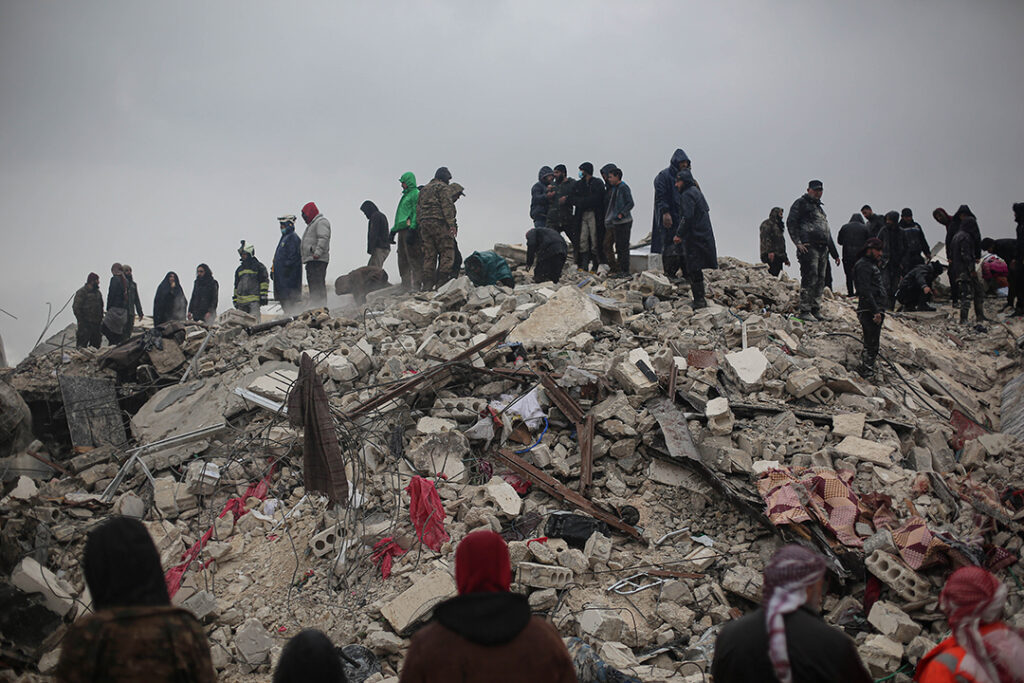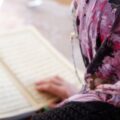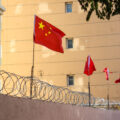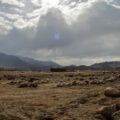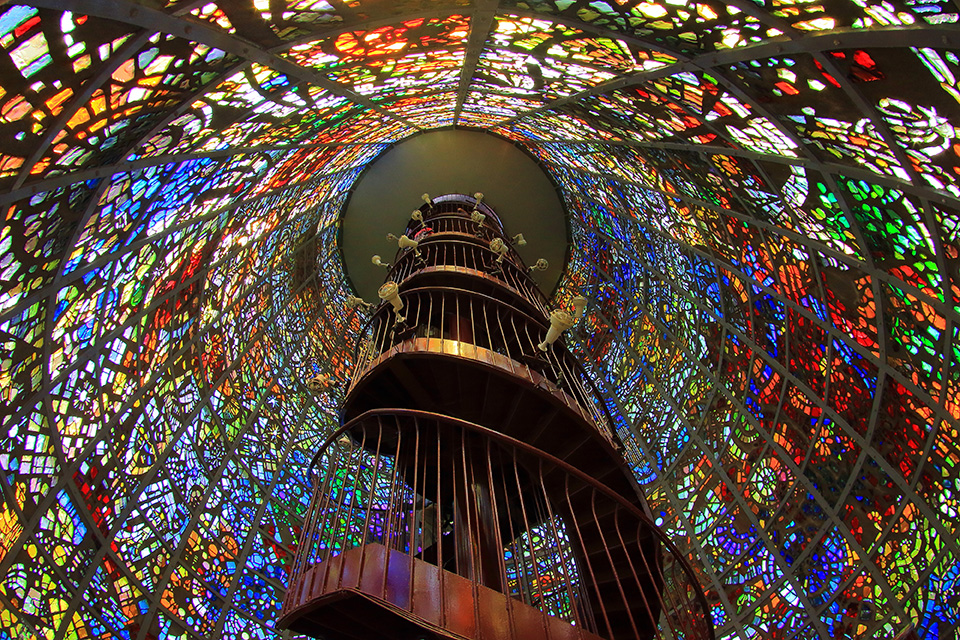Turkey and Syria earthquakes draw religious response
Turkey and Syria earthquakes draw religious response
Believers of all kinds have responded to the devastation in Turkey and Syria. The disaster brings into focus what unites religions and what divides them.
Earthquakes have so far killed over 40,000 in Turkey and Syria, with the death toll expected to rise even higher.[1] Those who managed to survive crumbling buildings are now faced with sub-zero temperatures and shortages of food and medicine.[2] Religions and religious leaders have played an important and varied role in the aftermath.
Muslim-Christian solidarity sparked by disaster
Turkey’s population is almost entirely Muslim, and the country’s government is steeped in political Islam.[3] Syria is also a majority Muslim country, but is home to a diverse range of minority religions.[4] Some of the most ancient branches of Christianity still exist in Syria, but are under threat because of persecution and instability.[5]
However, the earthquake has sparked many stories about cooperation between religions. Churches and mosques are common places of refuge, offering shelter to people regardless of religion.
In just one example, an evangelical Christian school in Aleppo, Syria, opened its doors to those who lost their homes. Muslims and Christians from all corners of society were welcomed into the shelter, provided with food and supplies. The school is doing this “for the whole community without any discrimination between denominations,” the school’s pastor said.[6]
Meanwhile, interfaith groups across the world are rallying to generate funds to help those in Turkey and Syria.[7] [8]
A political disaster?
Several eastern Christian patriarchs and leaders have highlighted the political dimension of the disaster. US sanctions on Syria have caused drastic shortages in medicine and crippled the local economy.[9]
The Middle East Council of Churches (MECC) urged all sanctions on Syria to be lifted, and access to goods and foods to be resumed. This must occur “so that sanctions may not turn into a crime against humanity,” their message warned.[10]
The US has since lifted sanctions on all transactions related to providing earthquake aid.[11] However, economic sanctions continue to hinder the country’s earthquake response, already weakened by 12 years of US and EU sanctions.[12]
A representative from MECC said: “It is a natural disaster in principle, but because of the imposed blockade it should be considered a man-made disaster … made by … our supposed brothers in humanity.” He even went as far as to call the sanctions “genocide” against the people of Syria.[13]
Indeed, there are reports the Turkish government’s response has neglected ethnic and religious minorities.[14] Turkey houses almost 4 million Syrian refugees, who have fled violence in their own country.[15] They are now caught between a devastating earthquake, growing hostility among their hosts,[16] [17] and persecution in Syria.[18]
Turkey’s president, Recep Tayyip Erdoğan, has criticised attempts to politicise the disaster, calling for unity. However, his political opponents have said Erdoğan is personally to blame for the slow and piecemeal response.[19] [20]
Most religious leaders united in solidarity
Pope Francis expressed personal closeness with the victims of the natural and social disasters in the Middle East. He asked for Our Lady (the Virgin Mary) to protect them, leading a crowd of thousands in a recitation of the Hail Mary. Francis also used the emotive language of martyrdom to refer to regions of Syria, which are “in part already martyred by a long war.”[21]
The International Union of Muslim Scholars has called for “full solidarity” with Turkey and Syria. Sending aid is a “legitimate duty towards brothers in Turkey and Syria,” the group said.[22]
Some religious leaders made more controversial remarks. Rabbi Shmuel Eliyahu, a divisive figure in Israel’s national religious movement, has described the earthquake as “divine justice.” He wrote that natural disasters “cleanse the world and make it better,” framing Syrians as historical persecutors of Israel.[23]
Many other rabbis and Jewish leaders have condemned Eliyahu’s comments, with some calling them “inconceivable.”[24] Israel’s Chief Rabbi Lau issued a special Sabbath exemption, allowing Jewish rescue teams to continue to work to save lives.[25]
Aid accompanied by gospel message
Christian organisations have seen the disaster as an opportunity to share the gospel, alongside more practical messages. A Turkish evangelical radio station, Shema Media, is interspersing slow Christian music and scripture readings between news updates.[26]
Another Christian TV-network, SAT-7 Turk, also aims to show spiritual and material support: “We are raising awareness on how we can help, and continuing to bring Jesus to those who need him most.”[27]
Muslim charities have also been extremely active in the aftermath. Birmingham-based charity Islamic Relief says they have never received as many donations as after the earthquakes.[28]
Muslim leaders and organisations are united in calling upon God’s help in earthquake response.[29] However, Muslim aid organisations are noticeably less interested in converting people than Christian organisations. While both religions seek to convert non-believers,[30] Muslim groups may feel it is inappropriate to attempt to convert disaster victims.
The earthquakes are being called the “disaster of the century,” requiring a global response.[31] This crisis continues to bring into focus what unites religions, and what divides them.
Want to learn more about similar topics? Go to the EARS Dashboard
Sources
[1] Al Jazeera: Turkey-Syria earthquake live: Death toll surpasses 40,000
[2] BBC: Turkey-Syria earthquake
[3] NPR: Turks Examine Their Muslim Devotion After Poll Says Faith Could Be Waning
[4] Harvard Divinity School: Syria
[5] BBC: Syria’s beleaguered Christians
[6] NCB: Reverend in Syria Opens Church to Earthquake Victims
[7] 3News: Omaha mosque kicks off drive to support displaced earthquake victims
[8] KPBS: Islamic Center of San Diego rallies to help earthquake survivors
[9] AP: Aid to quake-hit Syria slowed by sanctions, war’s divisions
[10] The Middle East Council of Churches: After the Earthquake Which Hit the North of the Middle East
[11] Al Jazeera: US exempts Syrian earthquake aid from sanctions
[12] Al Jazeera: US exempts Syrian earthquake aid from sanctions
[13] The Middle East Council of Churches: Listen, Little Creature!
[14] The New Yorker: Turkey’s Earthquake Response Is as Political as the Conditions That Increased the Devastation
[15] The New Yorker: Turkey’s Earthquake Response Is as Political as the Conditions That Increased the Devastation
[16] Reuters: Earthquake fans anti-Syrian sentiment in Turkey amid desperate conditions
[17] Financial Times: ‘They hate us’: earthquake tests ties between Syrian refugees and Turkish hosts
[18] AP: Earthquake in Turkey is only the latest tragedy for refugees
[19] BBC: Turkey earthquake: Erdogan ‘responsible for this’ opposition leader says
[20] BBC: Turkey quake: President Erdogan accepts some problems with response
[21] USCCB: Pope Francis calls for solidarity with Turkey, Syria after earthquakes
[22] Muslim Scholars Seek Urgent Aid For Turkey, Syria After Massive Quake
[23] Times of Israel: Top national religious rabbi says deadly quake in Turkey, Syria is divine justice
[24] Times of Israel: Top national religious rabbi says deadly quake in Turkey, Syria is divine justice
[25] Jewish News: Israeli Chief Rabbi issues Shabbat dispensation for earthquake search and rescue
[26] Christianity Today: Turkish and Syrian Christians Rally Relief After Earthquake Kills 20,000
[27] Christianity Today: Turkish and Syrian Christians Rally Relief After Earthquake Kills 20,000
[28] BBC: Turkey-Syria earthquake: Islamic Relief amazed by community response
[29] From the Marja | Statement on the Earthquake in Türkiye and Syria
[30] Christianity Today: Christian and Muslim Leaders Agree on Legitimacy of Evangelism
[31] AP: Rescuers push to find survivors of ‘disaster of the century’
